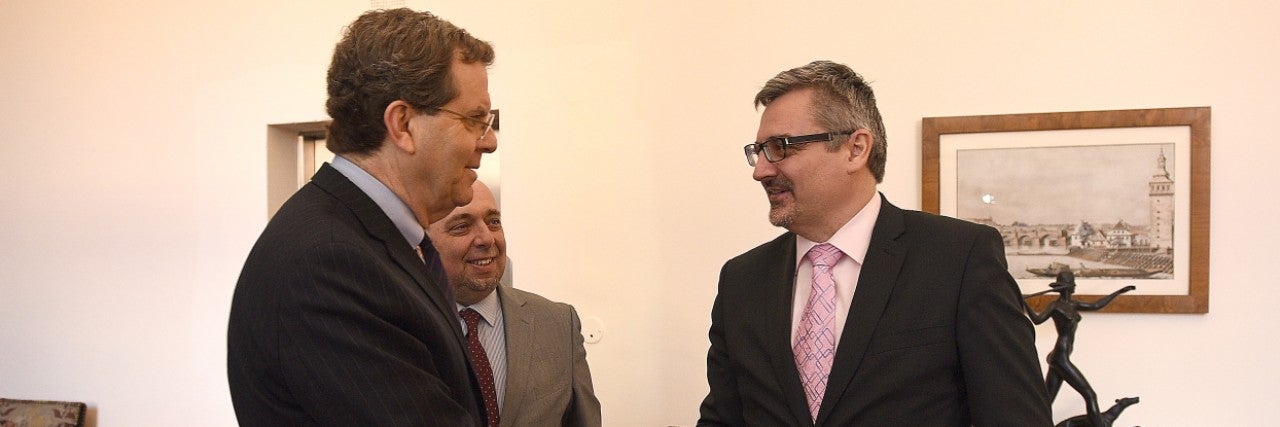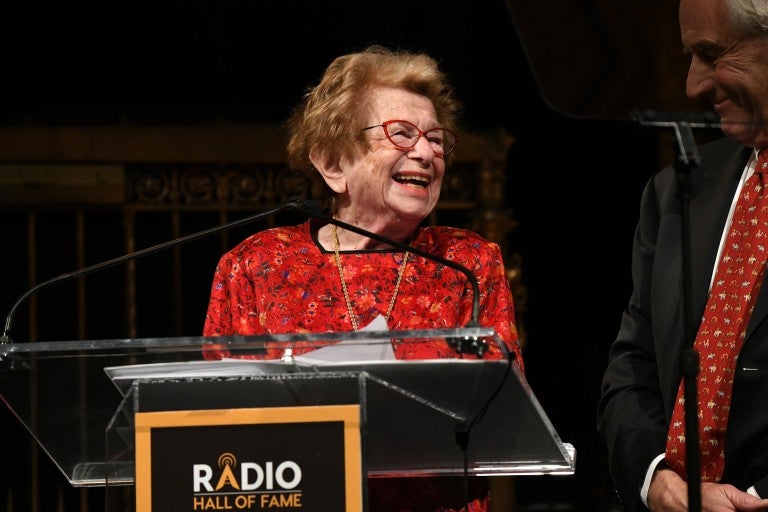April 2, 2017 — Vilnius, Lithuania
An AJC leadership delegation met with Lithuanian Prime Minister Saulius Skvernelis during a three-day visit to the Baltic nation’s capital.
This latest AJC visit to Lithuania, which concluded yesterday, came immediately after AJC Central Europe, the global advocacy organization’s fifth and newest office in Europe, was launched at a gala in Warsaw attended by more than 500 government officials, senior diplomats, media representatives, and AJC leaders from across the U.S. and Europe.
Lithuania is one of the seven countries in the region that AJC Central Europe is engaging. The others, in addition to Poland, are the Czech Republic, Estonia, Hungary, Latvia, and Slovakia. AJC delegations are visiting those countries as well after a series of meetings in Poland, where the office is based and led by Acting Director Agnieszka Markiewicz.
“Our newest office, AJC Central Europe, enables us to intensify our commitment to, and friendship with, Lithuania and other significant countries in the region,” said Harriet Schleifer, Chair of AJC’s National Board of Governors, and Steven Zelkowitz, a member of AJC’s Executive Council, who co-chaired the AJC delegation. “This vital country is important to the Jewish people, as it is to the United States and Israel.”
During the visit, the AJC delegation also met with Vice Minister for Foreign Affairs Darius Skusevičius; Deputy Speaker of the Parliament Gediminas Kirkilas; and Mayor of Vilnius Remigijus Šimašius, who was early signatory to AJC's Mayors United Against Antisemitism statement. Moreover, the group held private discussions with U.S. Ambassador Anne Hall, Israeli Ambassador Amir Maimon, and the leadership of the Jewish Community of Lithuania, a longstanding AJC partner, including its president, Faina Kukliansky.
The principal topics of discussion were: (a) Lithuanian-U.S. relations in the new political era; (b) Lithuanian-Israeli relations; (c) recent developments in the European Union, including especially the challenges of Brexit and of migration; and (d) threats to regional and national security.
The AJC delegation also visited the Holocaust memorial at Ponary, where more than 100,000 people, mostly Jews, were massacred by the Nazis and local collaborators.
On Friday evening, the Jewish Community of Lithuania hosted the group for a festive Shabbat dinner. In attendance were the Japanese Ambassador and U.S. Deputy Chief of Mission, as well as many community leaders.
The Japanese ambassador also joined the group for their visit to the Sugihara House Museum in Kaunas, the site of the Japanese consulate during World War II where diplomat Chiune Sugihara, acting entirely on his own, issued transit visas during World War II to provide safe travel to Japan for thousands of Jews fleeing the Nazis.
AJC engages regularly with Lithuanian diplomats across the U.S. and elsewhere, and the global Jewish advocacy organization meets with Lithuanian officials each year on the sidelines of the UN General Assembly.
Importantly, Rabbi Andrew Baker, AJC Director of International Jewish Affairs, who has been honored by the Lithuanian government, has maintained frequent contact with the country's top officials for well over a decade, focused on matters of restitution and historical memory.
AJC had frequent contact, beginning in the late 1980s, with Professor Vytautas Landsbergis, a founder of Sajūdas, the Lithuanian independence movement.
In August 1991, AJC became the only major Jewish organization in the world to call for American recognition of the reestablishment of independence for Estonia, Latvia, and Lithuania. Several weeks later, President George H.W. Bush took that historic step. Moreover, AJC later helped in the effort to expand NATO membership to include the Baltic nations, and welcomed the full integration of the three countries into the EU in 2004.

